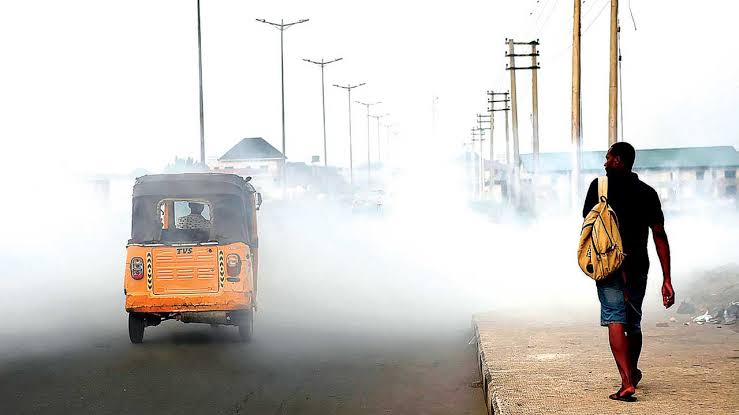The Lagos State Government has stated that the current air quality in many parts of the state as indicated in the state’s Air Quality Index is unhealthy.
IHence the Lagos State Environmental Protection Agency (LASEPA), has called for understanding and joint efforts of the public towards achieving a common and sustainable action plan geared towards mitigating the climate change effect and its attendant consequences on human health.
General Manager of LASEPA, Dr Babatunde Ajayi, in a statement, yesterday, stated this during a media briefing to analyse the implication of the current air quality in some parts of the state.
Ajayi noted that the air quality index as released by the agency was an indication that there is need for people to be more conscious of what they do to the environment, imploring residents to retrace their steps and join hands with the government in protecting the environment through actions and activities that are more environmentally-friendly.
The LASEPA general manager said that people in the affected areas might suffer from respiratory-related diseases.He also identified agricultural and industrial emissions as major contributors to poor air quality, noting that there are other worrisome agricultural activities, such as the burning of cow skin, as well as emissions from areas with large concentrations of industries.
He, therefore, urged the people to mark their major celebrations with tree planting to increase the number of trees in public places, adding that tree planting advocacy must be strengthened in all public and private schools to enable the youths to imbibe the culture.
Ajayi noted that green energy is safer, more secure, and very environmentally-friendly than diesel or gasoline oil.
The general manager, who also advised that people must reduce the number of vehicles on roads through carpooling or a preference for public transportation rather than individuals putting their vehicles on roads daily, said that his agency would continue to monitor the environment and implement policies that would ensure compliance with government’s regulations and guidelines towards achieving a cleaner, safer, and pollution-free environment befitting the status of the state.













